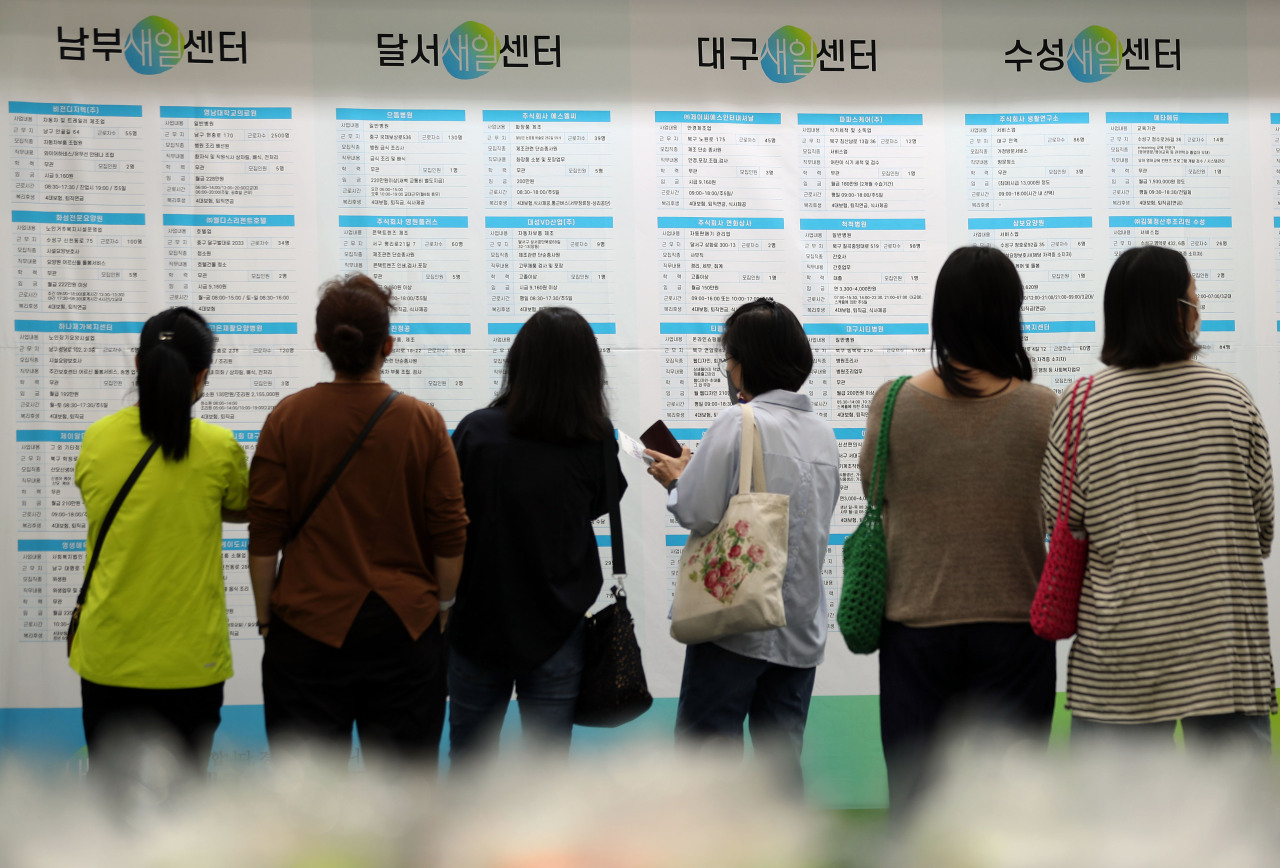 |
Job seekers look at employment information at a job fair held at a convention center in Daegu on Friday. (Yonhap) |
The Ministry of Gender Equality and Family released the results of a study under the title “Life of Men and Women through Statistics.” Though the Gender Ministry had conducted the study every year since 1997 under the title of “Women's Lives through Statistics,” it changed the name this year, including an index on double-income families and cyber sexual assaults.
In 2021, Korea posted a 35.4 percent gender wage gap, meaning, women earned 31.4 percent less than men on average.
The employment rate of women last year was at 50.7 percent, marking a 0.5 percentage point increase from the year before. The gap in the employment rate between men and women was 18.8. percent, little less than the 19.1 percent point from the year before.
However, 47.4 percent of employed women were nonregular workers, including those holding temporary positions, while 31 percent of employed men were nonregular workers.
The gender wage gap has deepened, according to the report. While an employed man earned an average of 3.83 million won ($2,780) a month, an employed woman earned the average of 2.47 million won a month, which is 64.6 percent of a man’s average wage. The gender wage gap of monthly income was 1.36 million won, marking a 3 percent increase from last year.
There were 1.44 million career-interrupted women in Korea last year, which is about 57,000 less than that of the year before. Women in their late 20s were the most employed age group, with 70.9 percent employed. But the figure dropped significantly for women in their late 30s, as only 57.5 percent of them were employed.
The reasons for many women’s interrupted careers were childcare, marriage, pregnancy and childbirth.
The study also showed that more women received medical services for infertility treatment in 2021, marking a tenfold increase compared to 2017. Last year, 79,099 women and 65,900 men received medical services for infertility treatment. The average age of women giving their first childbirth was 32.3 years old, 3.2 years higher than 2005.
By Im Eun-byel (silverstar@heraldcorp.com)







